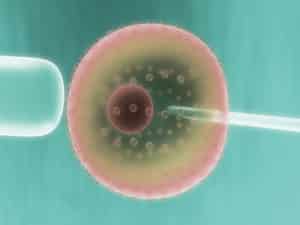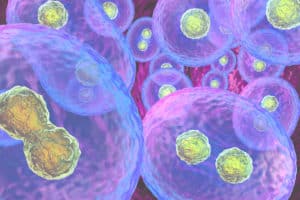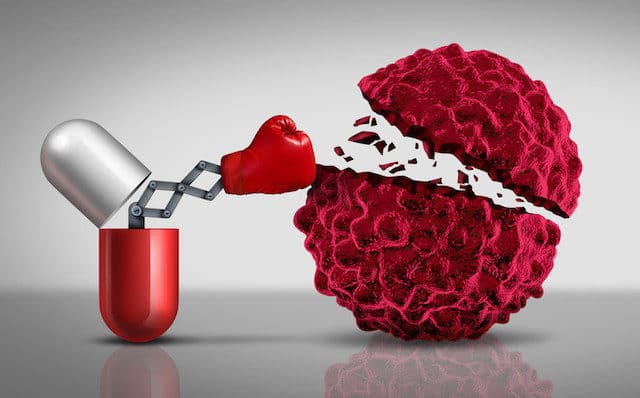The fight against cancer is long and difficult, but scientists are always making small improvements. Just recently, another fight has been won by scientists in the battle against the deadly disease. These researchers figured out an integrative approach to stop a couple different types of cancer from growing and developing into bigger tumors. This means that new types of treatments could be on the way for patients who struggle with these various forms of cancer.
A Key Gene in Stopping Tumor Growth
 The crucial part of stopping the development of certain cancers is a gene that researchers have now located. The gene is called MYC. MYC is one of the genes that is very often affected by cancer, causing a little less than half of all tumors. The gene is used by the body to monitor the way cells divide and then grow. However, sometimes when cells divide, they become mutated. So when the MYC cells mutate into cancerous cells, they can no longer control cell division and growth. This means that they cannot monitor the growth of tumors, and the tumors can quickly grow larger.
The crucial part of stopping the development of certain cancers is a gene that researchers have now located. The gene is called MYC. MYC is one of the genes that is very often affected by cancer, causing a little less than half of all tumors. The gene is used by the body to monitor the way cells divide and then grow. However, sometimes when cells divide, they become mutated. So when the MYC cells mutate into cancerous cells, they can no longer control cell division and growth. This means that they cannot monitor the growth of tumors, and the tumors can quickly grow larger.
A Different Approach
Currently, scientists still have not found a way to isolate the MYC gene in cancer treatment. This means they have focused their efforts on other ways to stop the mutation in the gene. Scientists are trying to do by blocking off the steps between the gene and the tumor so the tumor does not grow uncontrollably. Much of this research has focused on an enzyme called PERK. PERK is one of the steps along the chain from the gene to the tumor, so it might be involved in stopping the development of cancer in the body.
The work with PERK has not produced all good news, though. Even when the scientists in the study were able to eliminate PERK, the MYC gene had an answer. There was a second process that the gene could start by using a different enzyme. This means that cancer has more than one way it can develop, and it can actually choose which path is the best available.
The Next Steps
Dr. Constantinos Koumenis, the head of a cancer research team at the University of Pennsylvania, said that all of these signs still point to improvements in cancer research. He says that they need to find ways to attack the cancer so that the mutated cells cannot get away easily, and more research into the MYC gene will help them do that.
 Another integrative approach the researchers could use to fight cancer is targeting a protein called ATF4. The research team blocked off this protein in a study using mouse cells. The cells then made too much protein because it was not being regulated by ATF4, and the cancer cells could not survive with the amount of protein they produced. This technique was the most effective against lymphomas, a form of blood cancer.
Another integrative approach the researchers could use to fight cancer is targeting a protein called ATF4. The research team blocked off this protein in a study using mouse cells. The cells then made too much protein because it was not being regulated by ATF4, and the cancer cells could not survive with the amount of protein they produced. This technique was the most effective against lymphomas, a form of blood cancer.
The scientists also found a connection between ATF4 and the MYC gene, so this is shows potential for humans to treat cancer the same way that was effective in fighting the cancer in mice cells.


























